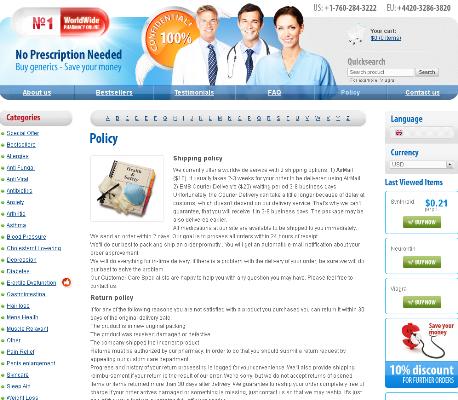What Is Priligy and How Does It Work?
Priligy, known for its active ingredient dapoxetine, is a medication specifically designed to address issues of premature ejaculation in men. It functions by increasing serotonin levels in the brain, thus enhancing control over ejaculation and extending the time before climax. Developed initially as an antidepressant, Priligy was repurposed due to its unique effects on sexual performance.
| Drug Name | Active Ingredient | Primary Use |
|---|---|---|
| Priligy | Dapoxetine | Premature Ejaculation |
It's important to note that Priligy is a short-acting medication, taken only when needed, typically one to three hours before sexual activity. This flexible usage allows men to acommodate their treatment around their intimate needs, ensuring better outcomes and satisfaction for both partners.
Recommended Dosage: Finding the Right Amount

Determining the proper dosage for Priligy involves a balance tailored to the individual, ensuring both efficacy and minimal side effects. Healthcare professionals generally start with a 30 mg dose, taken one to three hours before sexual activity. However, depending on how the body responds, the dosage may be increased to 60 mg. It is essential to note that Priligy is not intended for daily use.
Finding the right dosage might require some adjustments, and patients should closely communicate with their healthcare provider to achieve the best results. Never adjust the dosage without medical advice, as improper use can lead to adverse effects. Always ensure to recieve your medication from a reputable source.
Common Side Effects: What to Expect
When taking priligy, it's common to experience some mild side effects. Users often report feelings of dizziness, headaches, and nausea, which usually subside as teh body adjusts to the medication. Another noticable issue might be digestive discomfort, including diarrhea or dyspepsia. These side effects are generally manageable and typically diminish over time.
It's essential to be aware of these possibilities to better prepare and manage your experience with priligy. Some individuals have also experienced issues with insomnia or anxiety, which can Occur and impact overall well-being.
While these side effects are common, they don't usually pose serious health risks. However, if any symptom becomes particularly bothersome or persists, contacting a healthcare professional is recomend. Their guidance can help you navigate these challenges safely.
Serious Side Effects: Recognizing Warning Signs

When considering the serious side effects of Priligy, it is crucial to be vigilant. One potential severe reaction is syncope, or sudden fainting, typically occurring shortly after intake. This can appear alarming and requires immediate medical attention. Additionally, some users might experiance intense dizziness or severe nausea, which are signifcant warning signs. On rare occasions, cardiovascular symptoms such as palpitations or irregular heartbeats may arise, signaling a need to cease the medication and consult a healthcare provider.
Another critical aspect to keep in mind is the possibility of mood alterations. Instances of depression, anxiety, or even suicidal thoughts have been reporte in some individuals taking Priligy. Such psychological changes should not be ignored and warrant prompt discussion with a medical professional. Furthermore, severe allergic reactions, though infrequent, demand urgent care—manifestations like hives, swelling, or difficulty breathing are red flags.
Properly acknowledging these severe side effects aids in safe and informed use of Priligy. Noticing early warning signs and seeking timely intervention can make a substantial difference. Patients are encouraged to maintain open communication with their healthcare providers to manage and mitigate any serious adverse effects efficiently.
Interactions with Other Medications and Substances
When taking priligy, it's vital to understand how it interacts with other medications and substances to avoid adverse effects. Priligy can interact with several categories of drugs, particularly those used for mental health conditions, such as antidepressants. Mixing priligy with other serotonin-enhancing medications can lead to serotonin syndrome, a potentially life-threatening condition.
Alcohol consumption is another crucial factor to consider. Combining alcohol with priligy may increase the likelihood of fainting, dizziness, and impaired judgment, all of which can be dangerous. Maintaining an awareness of these risks can help manage your health more effectively.
It's also sensible to consider any other non-prescription substances or supplements you may be using. Certain herbal supplements, for example, might affect how well priligy works in your system. Consult your healthcare provider to get personalized advice tailored to your specific circumstances.
| Drug or Substance | Possible Interaction |
|---|---|
| Antidepressants | Increased risk of serotonin syndrome |
| Alcohol | Higher chance of dizziness and fainting |
| Herbal Supplements | Potential effects on efficacy |
Tips for Minimizing Side Effects and Maximizing Benefits
Taking Priligy as prescribed can significantly reduce the risk of side effects. Begining with the recommended dosage and adjusting based on medical advice is crucial for obtaining the medication's full benefits. Always take Priligy with a full glass of water to aid absorption and minimize gastrointestinal discomfort. Additionally, it is important to avoid alcohol and grapefruit juice, wich can interact negatively with the medication, enhancing side effects. By following these guidelines, users can optimize their treatment experience.
For further information, visit the following links:
Priligy Clinical Study Drugs.com - Priligy

